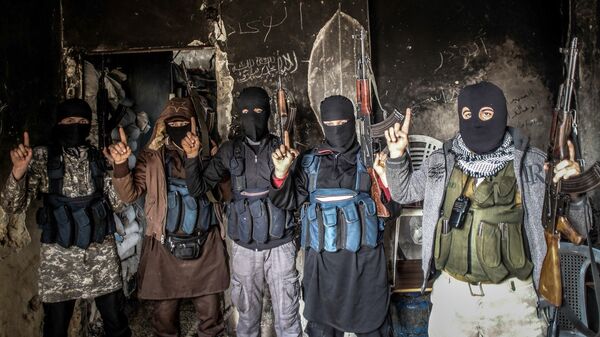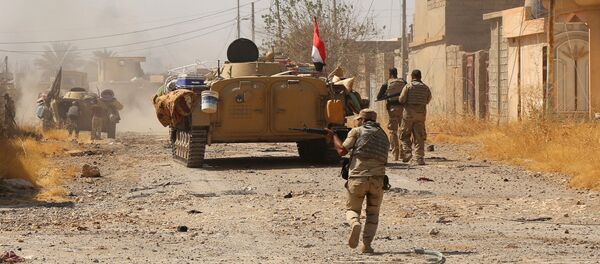The Al-Qaeda leadership should "count their days," according to CIA director Mike Pompeo.
"If I were them, I'd count my days," Pompeo told Fox News, in an interview, 16 years after the terror group attacked the US on September 11 2001, killing 2,999 people and injuring over 6,000 more.
He said that the CIA is "working diligently" to find and bring to justice the suspected current leaders of the organization, Osama bin Laden's son Hamza and Osama's former confidant Ayman al-Zawahiri.
Compared with its "high-point" in the aftermath of 9/11, al-Qaeda is now "relatively limited" but it has spawned several more radical Islamic groups across the Middle East and Africa, Dr. Paul Rogers, Emeritus Professor of Peace Studies at the University of Bradford, told Radio Sputnik.
"There are important offshoots particularly Fateh Al-Sham in Idlib province in Syria, and it has also inspired groups in many parts of the world including Libya, Yemen, Somalia, Nigeria, Mali and the Sahel. But as an individual movement, located principally in north-west Pakistan, it is a shadow of its former self."
"But that does not mean that the concept of extreme Islamic paramilitary movements has gone away, essentially al-Qaeda has been replaced by other movements which have become much more significant, notably Daesh/ISIS."
"That is when you had the real growth of a religious, ideological version of very militant Islam. It's always been a very small minority of Muslims who've accepted this, but it has been problematic and it tends to be in a sense drawing from people who are relatively marginalized, whether that's across the Middle East, in Western Europe, the Caucasus and elsewhere."
"It has a life of its own given that you have a lot of young people, particularly young men, who essentially feel on the margins and are willing to be recruited, sometimes into very extreme movements."
"It is seen as something which can be treated as a military matter, using the traditional control paradigm [so that] you suppress these kinds of movements. The problem is, that is not getting to the root of why these movements occur in the first place and why they tend to gather support."
"Nowadays, that is much more socio-economic and increasingly in the future it's going to be environmental as well. I think we have to do some pretty basic rethinking of our understanding of international security because we are now moving progressively into an era of irregular war against substate groups [which] do not buy into the traditional control paradigm."
"Unless we do that, I think we're really in for many years of war of the sort that we've had over the last 16 years."




